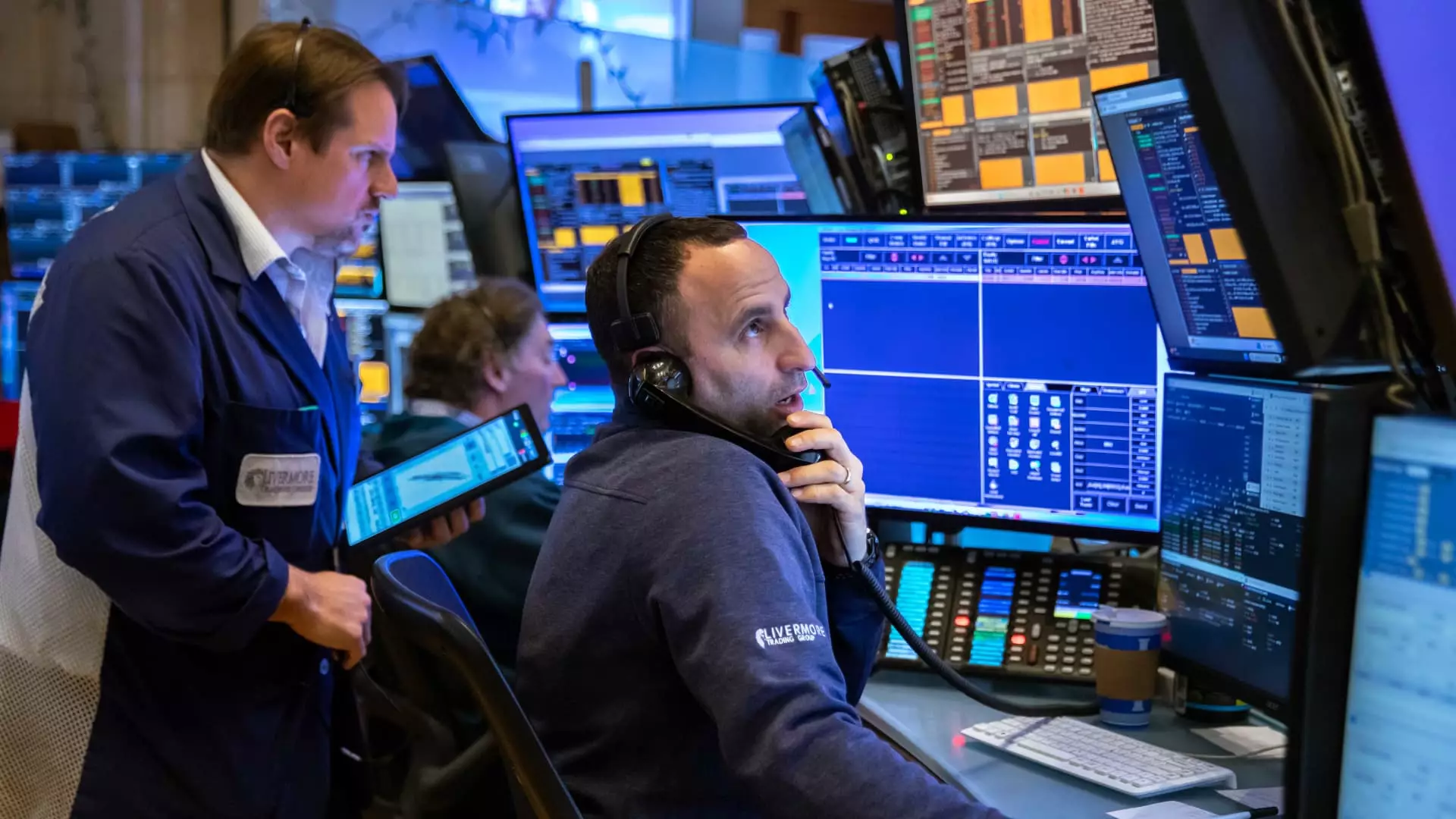As the new trading month begins, stock futures have taken a sharp downturn, reflecting a growing concern among investors regarding the latest developments in U.S. trade policy. Recent tariff announcements from the Trump administration, which include a 25% levy on goods from Mexico and Canada, coupled with a 10% tariff on imports originating from China, have triggered a wave of anxiety in financial markets. The magnitude of these tariffs on a collective $1.6 trillion in annual trade with these nations raises questions about their potential impact on both the economy and corporate earnings.
On Sunday night, investors reacted swiftly to the news, with futures linked to the Dow Jones Industrial Average plummeting by 528 points, translating to a 1% decline. The S&P 500 experienced a sharper drop of 1.9%, while futures for the tech-centric Nasdaq-100 plunged by an alarming 2.7%. The imminent threats of retaliatory tariffs from Canada and Mexico further complicate the situation, with Mexico indicating a willingness to consider imposing its own tariffs on American goods. The situation escalated when China announced plans to challenge the U.S. tariffs at the World Trade Organization, suggesting that trade tensions are likely to intensify.
Prominent market analysts, including Tobin Marcus of Wolfe Research, have emphasized the importance of interpreting the administration’s aggressive approach to tariffs with rigorous seriousness. Marcus posits that investors might need to adopt a more cautious outlook, suggesting that if a “new level of seriousness” permeates the market, traders could be in for a turbulent session. The sentiment isn’t just speculative; it highlights the shifting landscape of investor confidence as trade issues overshadow economic fundamentals.
Focus on Earnings Season
Amidst these concerns, traders are also gearing up for an essential week for corporate earnings. With over 120 S&P 500 companies preparing to report their quarterly results, expectations are high for insights into how tariffs might influence profits moving forward. Notable tech firms like Alphabet, Amazon, and Palantir are among those set to unveil their earnings, alongside well-known consumer brands such as Walt Disney and Mondelez. These reports will provide crucial data that could either alleviate or heighten existing fears regarding the economic ramifications of the trade wars.
Employment Data Ahead
Adding another layer to this volatile environment is the anticipation surrounding the upcoming January nonfarm payrolls report, which is scheduled to be released on Friday. Analysts anticipate 175,000 job additions for the month, with projections indicating that the unemployment rate should remain steady at 4.1%. These figures will be vital in painting a clearer picture of the labor market, while also serving as an important economic indicator as the nation grapples with tariff-induced uncertainty.
The beginning of February has ushered in a period of heightened volatility in the stock market. While the S&P 500 enjoyed a 2.7% gain in January, the recent turmoil following new tariffs casts a shadow over investor sentiment. As markets seek to navigate through these turbulent waters, the focus will undoubtedly remain on earnings reports and employment data—critical elements that will shape investor expectations moving forward. The interplay between domestic policies and international relations seems poised to create a challenging environment for traders, making vigilance imperative in these uncertain times.


Leave a Reply